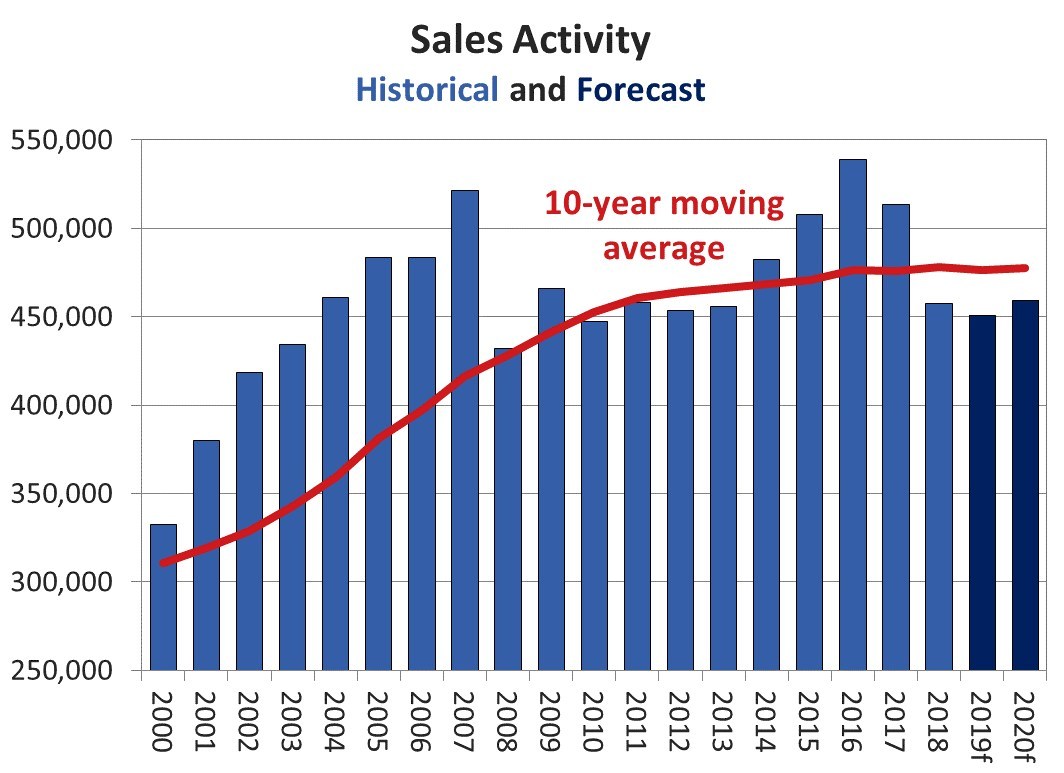Housing affordability main topic in federal budget
Andy Blatchford
other
The Trudeau government will take steps in Tuesday’s federal budget to make home-buying more affordable with changes affecting supply, demand and regulation, The Canadian Press has learned.
Finance Minister Bill Morneau has promised the budget will focus on ways to help improve housing affordability for Canadians, and particularly for millennials, who are now in their mid-20s to late-30s.
The changes, along with expected measures on adult skills training, pharmacare and supporting seniors, will be included in the Liberals’ fourth and final budget before the October federal election.
The budget’s housing measures could grab a lot of attention. Polls have suggested affordable home ownership is a key concern for millennials and could be a vote winner with the increasingly critical demographic.
Morneau has heard housing-policy recommendations from numerous sources, including academic, real estate and mortgage experts, on how best to help more people buy homes.
The budget will respond to issues in the housing-related areas of supply, demand and regulation, says a government source, who was not authorized to speak publicly about the plan ahead of its release. They declined to provide specifics on the measures.
The government, however, faces a delicate task of introducing changes that avoid destabilizing housing markets, driving up prices or enabling already overstretched households to pile on more debt.
Internal briefing documents show Morneau was warned in November that Canadians’ heavy debt loads are a key risk that have made abrupt shocks to incomes, house prices or interest rates a “significant concern.” The memo was obtained by The Canadian Press through access-to-information law.
No signs stress tests will be dialed back
Morneau has been feeling pressure to act on housing.
On the demand side, the real estate, mortgage and home-building industries have urged Ottawa to ease or eliminate stress tests that have tightened mortgage qualification rules and, as a result, cooled once-scorching markets in cities like Toronto and Vancouver.
The federal changes, combined with provincial and municipal guidelines, were brought in to improve the quality of mortgage debt and to lower risks to the broader economy.
Morneau has insisted the stress tests were needed as a way to keep prices in some markets from rising at an unsustainable clip. He’s shown no signs that he’s prepared to dial them back.
There have also been industry calls for the reintroduction of insurance on 30-year amortization mortgages as a targeted way to help people at the lower end.
But Paul Kershaw, an associate professor at the University of British Columbia, said many experts, himself included, have discouraged the government from weakening the stress tests or extending amortization out of fear such moves would only encourage people to borrow more.
/Darryl Dyck/CPA condo building is seen under construction surrounded by houses as condo towers are seen in the distance in Vancouver on March 30, 2018.
Kershaw is the founder of Generation Squeeze, a group dedicated to informing policy decisions about the socioeconomic challenges of younger Canadians.
He wants policies that keep home prices from growing faster than earnings.
“We’ve tolerated — not only that, we’ve celebrated — home prices rising a lot over the last decade,” Kershaw said.
“And we need a government that says, ‘Nope, henceforth we want housing to be for homes first, investments second.”’
He recommends Ottawa change “outdated” tax policy that shelters principal residences from taxation, thus exacerbating demand, limiting supply and pushing up prices.
Chris Young/CPA child points to the new budget shoes being put on by Finance Minister Bill Morneau in a pre-budget photo opportunity in Toronto on March 14, 2019.
On regulation and enforcement, Ottawa could take steps to crack down on people who falsely claim a home is their primary residence as a way to dodge capital gains taxes.
Morneau recently vowed to do more to enforce laws in another area that’s been directly connected to housing: money laundering.
Last year, reports from an international anti-money-laundering organization and the RCMP warned that organized crime groups had bought luxury home sales in the Vancouver area to launder and hide their money.
On supply, Kershaw said the federal government could create incentives to encourage more cities to raise their housing density targets. Ottawa could offer a larger share of infrastructure transfers — like those for transit — to municipalities that agree to allow the construction of more homes to be built per plot of land.
To increase demand, Kershaw said the government could bump up the maximum, one-time withdrawal limit of $25,000 under the home buyer’s plan, which enables Canadians to borrow once from their own registered retirement savings plan to buy a home.
Ottawa could also increase the non-refundable, $5,000 first time home buyers tax credit, which offers up to $750 in tax relief, he said.
Opposition delay tactic delayed to after the budget
The budget’s release date was at risk of being delayed after the Conservatives took steps to use their opposition day Monday for an extended House of Commons voting session, which would have spilled into Tuesday.
The Tories were hoping to use the procedural move to draw attention to the House of Commons justice committee, which is also set to meet Tuesday to determine if it will recall former attorney general Jody Wilson-Raybould as a witness.
But Mark Kennedy, a spokesman for House Leader Bardish Chagger, said Sunday that the Tories’ opposition day would be rescheduled to Wednesday. Therefore, it would not interrupt the budget’s release.
Opposition MPs were furious last week after the Liberals used their majority at the committee to delay an attempt to call Wilson-Raybould to testify again on the SNC-Lavalin affair.
The move prompted shouts from opposition MPs at committee of “shame,” “coverup” and “despicable!”
Copyright © 2018 TheHuffingtonPost.com, Inc.


